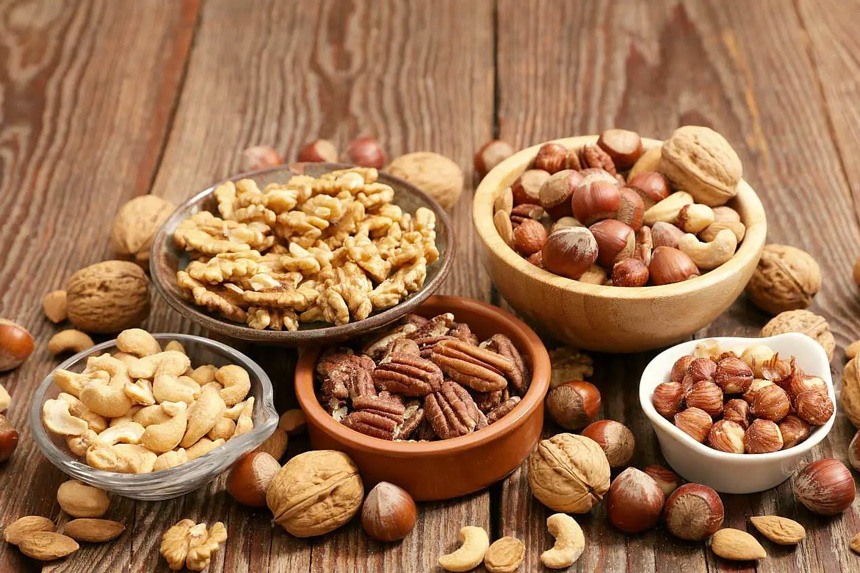Nuts and Seeds

Nuts and seeds, known for their hearty dose of protein, fiber, and essential vitamins and minerals, also contribute to daily folate needs. The folate content can vary slightly among different types, with walnuts containing about 28 mcg per ounce, contributing 7% of the daily value, and flax seeds containing about 24 mcg per ounce, contributing 6% of the daily value.
Incorporating more nuts and seeds into your diet provides not only a convenient way to meet your daily folate needs but also an abundance of nutrients beneficial for overall health.
Walnuts, with their rich flavor and texture, offer a delightful crunch while supplying folate and a host of other essential nutrients. Meanwhile, flax seeds, known for their omega-3 fatty acids, contribute to heart health and provide folate. Adding a variety of nuts and seeds to your snacks or meals ensures a diverse nutrient profile, supporting various bodily functions and promoting overall well-being.
In conclusion, these eight nutrient-packed foods serve as excellent sources of folate, contributing to overall health when incorporated into a balanced diet. Consider diversifying your meals with these folate-rich foods to support healthy cell division, promote proper fetal growth, and reduce the risk of congenital disabilities. Remember, a varied and colorful diet not only adds excitement to your plate but also nourishes your body with the essential nutrients it needs for optimal function.





